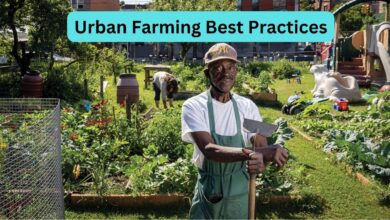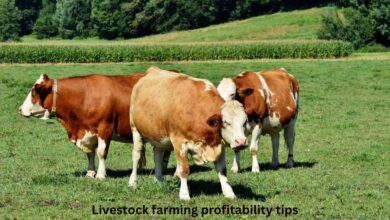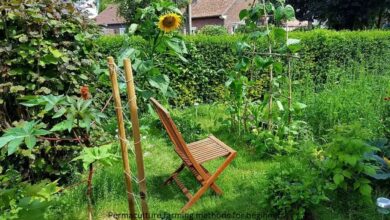Sustainable Organic Farming Techniques 2024: Grow Green
Sustainable organic farming Techniques is about balancing agriculture with nature. The goal is to grow crops that are good for the planet. This method helps soil become healthier and supports a wide range of plant and animal life. It’s a way for Indian farmers to care for the earth while growing food.
Farmers use techniques that reduce the need for harmful chemicals. They focus on building up the soil and use less water. This way of farming makes the land better over time. It also helps the area around the farm stay healthy.
Introduction to Sustainable Organic Farming
Sustainable organic farming is kind to the Earth. It values soil health, diverse life, and saving resources. It’s very different from regular farming. This type of farming uses natural ways and things that keep coming back, like the sun, rain, and wind, to grow food and care for animals.
What is Sustainable Organic Farming?
This kind of farming looks at everything together to be good for the planet and make tasty, healthy food. It doesn’t use man-made chemicals to grow food or fight bugs. It relies on the natural power of the earth to make food, keep bugs away, and change what grows in the fields from time to time.
Benefits of Sustainable Organic Farming
- Soil Health and Fertility: Cover crops, changing the crops, and adding compost make the soil rich with nutrients. This helps the soil last a long time.
- Biodiversity Conservation: It helps keep many different plants and animals alive, making the natural world healthier.
- Reduced Environmental Impact: This way of farming doesn’t pollute the air, water, or land like regular farming. It cares for the Earth by not using harmful chemicals.
- Nutritional Value: The food it grows is packed with the good stuff our bodies need, more than food grown with chemicals.
- Economic Opportunities: Many people want food grown this way. This has helped farmers earn more money, making their lives better.
| Metric | Conventional Farming | Sustainable Organic Farming |
|---|---|---|
| Soil Health | Degradation of soil structure and fertility over time | Improved soil structure, increased organic matter, and enhanced nutrient cycling |
| Biodiversity | Reduced habitat for wildlife and pollinators | Promotes the thriving of diverse plant and animal species |
| Environmental Impact | High greenhouse gas emissions, water pollution, and resource depletion | Reduced environmental footprint and improved resource conservation |
| Nutritional Value | Lower concentrations of essential nutrients | Higher concentrations of vitamins, minerals, and antioxidants |
| Economic Opportunity | Reliance on synthetic inputs and fluctuating commodity prices | Growing demand for organic products and increased farmer incomes |
Soil Health and Fertility Management
Maintaining soil health is key in organic farming. Good soil means better crops. We’ll look at how to keep soil healthy in organic farming.
Organic amendments are vital for soil health. These include compost and manure. They improve the soil’s structure and hold water better. This helps the soil stay nutrient-rich and supports plants. These materials also help good microorganisms grow, which is important for the soil’s health.
Cover crops are also important. They protect the soil between harvests. Things like beans, grasses, and cabbage are used. They stop erosion, make the soil better, and add nutrients for the next plants.
Not tilling the soil much is another strategy. This keeps the soil’s structure and microorganisms in good shape. It’s key for the soil to stay healthy and alive over time.
With these methods, organic farmers keep their soil super healthy. This leads to great, sustainable crops. The whole farm benefits from this good practice.
Crop Rotation and Companion Planting
In sustainable organic farming, two key methods shine: crop rotation and companion planting. Used together, they boost soil health, tackle pests, and up crop yields. They do this while following organic farming ideals.
Principles of Crop Rotation
What’s crop rotation? It’s growing a series of different crops in one area, season after season. This keeps the soil healthy. It does this by adding nutrients back in the soil and breaking pest and disease chains. It also stops soil from washing away. This technique prevents nutrients from being used up and helps keep helpful organisms alive. Precisely, the soil stays fertile.
The main steps of good crop rotation are:
- Turning between crops with deep roots and ones with shallow roots
- Mixing plants that either add or take away nitrogen from the soil
- Swapping crops that are more or less likely to get pests and diseases
- Using cover crops that help the soil and add organic matter
Companion Planting Techniques
Companion planting means putting certain plants next to each other to boost their health and yields. This way, you can keep pests away, bring in good bugs, and make the main plants grow better.
Here are ways of companion planting that work:
- Put marigolds on the edge of a garden to scare off harmful nematodes
- Grow tomatoes with basil so they taste better and resist diseases more
- Plant legumes next to crops like corn to make the soil better
- Add flowers too; they bring in important pollinators and helpful insects
By using crop rotation and companion planting together, farmers can build a healthy, self-supporting farm. This reduces the need for man-made chemicals and keeps the land strong for the future.
Integrated Pest Management
Sustainable organic farming uses integrated pest management (IPM) to control pests and diseases. IPM consists of several methods to reduce pests without lots of chemicals. This section looks into the use of biological pest control methods in organic farming.
Biological Pest Control Methods
Almost all organic farmers use biological pest control as a key part of their farming. It involves natural predators, helpful insects, and biopesticides. By using nature, they lower the need for harmful chemicals and keep the environment healthy.
- Beneficial Insects: Organic farmers like having beneficial insects around. Creatures like ladybugs and lacewings eat aphids and other pests. This means less need for chemicals.
- Natural Predators: Some organic farmers bring in animals like birds to eat pests. These creatures help keep the pest numbers down naturally.
- Biopesticides: Organic farmers can use biopesticides made from plants or microbes. These target specific pests without hurting good bugs or the Earth.
| Biological Pest Control Method | Description | Examples |
|---|---|---|
| Beneficial Insects | Natural predators that feed on common garden pests | Ladybugs, lacewings, parasitic wasps |
| Natural Predators | Animals that prey on pests, helping to maintain a balanced ecosystem | Birds, bats, small mammals |
| Biopesticides | Pest control products derived from natural sources, such as plants, bacteria, or fungi | Bacillus thuringiensis (Bt), neem oil, pyrethrin |
Organic farmers manage pests well and keep their farms healthy by using these biological pest control methods. It’s a sustainable way to farm.
Water Conservation and Irrigation Strategies
Water management is key in sustainable organic farming. With global water scarcity, farmers must use smart methods to save water. They must do this to keep their crops healthy and productive.
Drip irrigation is a top water-saving approach. It sends water right to plants’ roots, which reduces waste. By adjusting the water flow and how often it’s used, farmers meet their crops’ exact needs. This saves water and keeps the soil just right.
Organic farmers can also try rainwater harvesting. They collect rainwater in the wet season to use later when it’s dry. This method cuts down on using groundwater or city water. It also helps fill up local water stores and fights drought effects.
Using drought-tolerant crop varieties is another smart move. These crops do well with little water. So, farmers can still have healthy plants even if water is tight.
A mix of these methods helps organic farmers keep their farms going for the long haul. It also protects the environment and saves water for the future.
Sustainable organic farming techniques
In the push for green agriculture, organic farming methods offer a great path. They focus on saving our planet and growing healthy crops. With these methods, farmers can build a strong, lasting farming system.
Improving soil health is a big part of organic farming. It means adding stuff like compost and vermicompost, natural fertilizers made from plants and animals, into the soil. This makes the soil better for plants and helps good bacteria thrive, which is important for plant growth.
Organic farming also looks at dealing with pests in natural ways. Like letting helpful bugs, such as ladybugs and lacewings, eat the pests. Farmers also plant herbs and flowers that attract these good bugs, keeping pest numbers low naturally.
Growing different kinds of crops together is also a cool technique. It’s called polycultures and intercropping. This way, farmers control weeds better, prevent pest attacks, and make their farms more diverse.
These farming methods offer many benefits. They make farming stronger, use fewer resources, and produce food that’s good for you. It’s a win for the planet and us.
Organic Waste Management and Composting
Organic farming teaches us to reuse organic waste like food scraps. We can turn such waste into compost. This compost is full of nutrients. It helps the soil stay healthy and fertile.
Composting Methods
Many composting methods help organic farmers handle waste. These include hot composting, vermicomposting (using worms), and cold composting. Farmers pick the best method based on their farm’s size and needs. The resources they have also play a big role.
- Hot composting needs careful control of things like temperature. It’s great for breaking down many types of organic waste fast. Even hard materials like wood can be composted this way.
- Vermicomposting uses worms, like Red Wrigglers, to turn waste into compost. It’s good for small farms and can work in cities too.
- Cold composting is a slower method. It lets nature break down waste over time. It’s useful for handling certain types of waste, like weeds with seeds.
Benefits of Composting
Using compost helps organic farmers in many ways. It makes soil better, holds water well, and feeds plants with vital nutrients. By using compost, farmers cut down on chemical fertilizers. This makes farming more sustainable.
- Compost makes the soil healthier. It’s better for plants to grow well.
- It recycles nutrients, releasing them slowly for plants to use.
- Soil with compost can hold more water. This reduces the need for extra watering.
- Composting cuts down on waste, making farming and our Earth healthier.
By managing waste well and making compost, farmers keep their land productive. They also help the environment.
Sustainable Organic Farming Certification
In the sustainable agriculture world, getting an organic farming certification is key. It ensures what you’re buying is trusted and sustainable. This step shows a farmer in India follows green farming methods, gaining eco-friendly certification.
India’s National Programme for Organic Production (NPOP) manages the organic farming certification. It sets the bar for what sustainable farming looks like, from how soil is managed to dealing with pests and crops after harvesting.
To be certified, farmers go through a detailed process. They are checked on their farming methods and if they follow NPOP’s rules. If they pass, they can use NPOP’s organic logo. This logo tells buyers that the product is truly organic and from a farm that cares about the earth.
Becoming certified doesn’t just help the farmer. It lets them sell their produce for more money. Shoppers are more willing to pay extra for food they know is grown sustainably. This demand for eco-friendly certification helps the whole organic farming industry grow and makes our food system kinder to our planet.
In India, the organic farming certification process shows the hard work of farmers who go green. It builds trust with shoppers looking for eco-friendly certification. As we all want greener ways to farm, this certification is important. It helps more and more farmers choose organic methods, answering the call for sustainable agriculture.
Conclusion
We’ve seen how sustainable organic farming can make agriculture in India greener and more efficient. It focuses on keeping the soil healthy, managing pests naturally, and using water wisely. This way, farmers can grow a lot without harming the environment.
Sustainable organic farming brings many good things. It makes the soil better, helps more plants and animals live together, and reduces the need for harmful chemicals. With more farmers in India using these methods, we can all enjoy a future where sustainable organic farming, eco-friendly agriculture, and India’s farming can grow well together.
The road to sustainable farming is a long one. Yet, by following the advice in this article, Indian farmers can take the lead. They can make the food system stronger and kinder to our planet. Let’s work together to make India greener, healthier, and wealthier with sustainable organic farming.
FAQ
What is sustainable organic farming?
It’s a farming method that cares for the planet. Farmers grow crops and raise animals without harmful chemicals. This way, the farm helps the environment.
What are the benefits of sustainable organic farming?
This type of farming is good for the earth and us. It makes the soil healthier and supports more kinds of plants and animals. Also, it keeps our food free from bad chemicals.
How can sustainable organic farming techniques improve soil health?
By using things like compost and not disturbing the soil too much, farmers make the soil better. Good soil means plants can grow well for a long time.
What is crop rotation, and how does it benefit sustainable organic farming?
Crop rotation is planting different crops in a row. It’s like changing the food on a dinner plate. This makes the soil richer and naturally stops pests and weeds.
How can companion planting techniques be used in sustainable organic farming?
Planting certain plants together helps keep away bad bugs and brings in good insects. This makes the farm ecosystem stronger and more natural.
What are some biological pest control methods used in sustainable organic farming?
Instead of chemicals, farmers use nature to fight pests. They introduce helpful insects and use natural enemies to keep the farm balanced and healthy.
How can water conservation and efficient irrigation strategies be incorporated into sustainable organic farming?
Farms use less water by choosing plants that don’t need a lot, and by capturing rainwater. This saves water and helps the farm be smart with resources.
What are the key principles of organic waste management and composting in sustainable organic farming?
Waste from the farm is turned into compost. This compost is then used on the farm, making the soil better. This way, the farm doesn’t need harmful chemicals.
Why is organic farming certification important for sustainable agricultural practices?
Certification shows that a farm is doing good things for the earth. It tells people that the food is grown in a way that supports nature.




